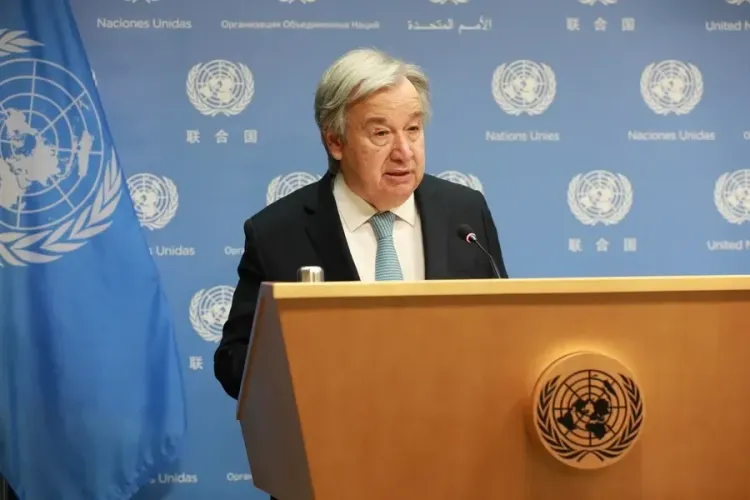The Effects of Desertification on Our Lives

Riyadh, Dec 1 (NationPress) An important UN summit dedicated to land restoration and drought resilience is imminent in the capital of Saudi Arabia, gathering global leaders to discuss and collaborate on tackling one of the most critical environmental issues on Earth.
The event, known as the 16th Session of the Conference of the Parties (COP 16) to the United Nations Convention to Combat Desertification (UNCCD), is set to take place from December 2-13. With the theme 'Our Land. Our Future', nearly 200 parties, alongside experts and civil society organizations, will meet to advocate for immediate action against desertification, as reported by Xinhua.
According to the UNCCD, desertification is described as 'land degradation in arid, semi-arid, and dry subhumid regions caused by various factors, including climatic changes and human activities.' This phenomenon converts once-fertile land into desert-like environments, leading to a decline in biomass productivity and a reduction in arable land, which poses a significant threat to food security.
Often regarded as a silent and invisible crisis, desertification disrupts communities worldwide. While its effects are most apparent through dust and sand storms, it also contributes to biodiversity loss, increasing unemployment, ecological displacement, and even conflicts.
The situation is already dire. The UNCCD states that land is responsible for producing nearly 95 percent of the world's food, yet up to 40 percent of global land is currently degraded, affecting approximately 3.2 billion people. Every second, an area equivalent to four football fields of healthy land is lost, culminating in a total of 100 million hectares each year. Moreover, droughts have become more frequent and more severe, with a 29 percent rise in their incidence since 2000. By 2050, it is estimated that three-quarters of the world's population could face drought, warns the UNCCD.
Human actions also play a role in desertification, including unsustainable agricultural practices that deplete soil nutrients, mining, overgrazing, and deforestation.
'We rely on land for our survival. Yet, we treat it like dirt,' stated UN Secretary General Antonio Guterres, emphasizing the urgent need to confront the crisis, as quoted by Xinhua news agency.
It is crucial to understand that combating desertification does not entail eliminating natural deserts—ecosystems that have developed through geological processes over time. The primary focus is on restoring areas that have become degraded and should not have turned into deserts in the first place.
Natural deserts, similar to forests, grasslands, and wetlands, are essential for maintaining the balance of terrestrial ecosystems. As a result, the challenge lies in preventing, reducing, and reversing land degradation, which necessitates collective international action.
The UNCCD, as the only legally binding international treaty focused on land management and drought, is one of the three Rio Conventions, alongside those addressing climate change and biodiversity. Over the years, it has successfully raised global awareness and rallied commitments to combat desertification, land degradation, and drought. The convention also offers crucial guidance, capacity building, and resource mobilization to tackle these challenges.
The forthcoming COP 16, which will celebrate the 30th anniversary of the UNCCD, is set to be the largest in the treaty's history and the first to occur in the Middle East and North Africa region. Delegates are anticipated to make decisions on collaborative actions to expedite land restoration efforts, enhance resilience to droughts and sand storms, restore soil health, and scale up nature-positive food production by 2030 and beyond.










